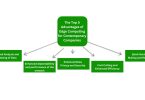Unveiling the World of Ethical Hacking: Defenders of the Digital Realm:
The term “Hacker” was originally used to describe experts who used their skills to improve mainframe systems, making them more efficient and capable of multitasking. Nowadays, it commonly refers to skilled programmers who gain unauthorized access to computer systems by exploiting vulnerabilities or using bugs, driven by malicious intent.
For instance, a hacker can create algorithms to crack passwords, infiltrate networks or disrupt network services. Malicious or unethical hacking primarily aims to steal valuable information or gain financial benefits. However, not all hacking is harmful. This leads us to the concept of ethical hacking.
So, what exactly is ethical hacking; and why is it necessary?
In this article, you will learn all about ethical hacking and more.
What is Ethical Hacking?
Ethical hacking is a legal and authorized practice where experts, known as ethical hackers or cybersecurity engineers, identify weaknesses in computer systems, applications or an organization’s infrastructure. Their goal is to find vulnerabilities that could potentially be exploited by malicious hackers or cause damage. By investigating and analyzing the system, they can strengthen its security and protect it from attacks.
Unlike malicious hacking, ethical hacking is planned and approved by the company that owns the system or network. It is a proactive measure to ensure the system’s defenses are robust and capable of withstanding threats.
Ethical hackers are hired by organizations to assess the vulnerabilities of their systems and develop solutions to prevent data breaches. It’s like using the knowledge of a thief to catch other thieves.
They focus on identifying key vulnerabilities, such as injection attacks, changes in security settings, exposure of sensitive data, breaches in authentication protocols and potential access points within the system or network.
Now that you have an understanding of ethical hacking, let’s move on to learning about different types of hackers.
What are the Different Types of Hackers?
There are different types of hackers based on their intentions and actions.
Let’s explore them:
White Hat Hackers:
These are ethical hackers who practice authorized hacking. They help organizations by identifying vulnerabilities in systems and networks; they do it with permission. Their goal is to enhance security and protect against potential threats.
Black Hat Hackers:
Black Hat hackers engage in illegal activities and violate security measures. They use unauthorized techniques to compromise systems or destroy information. Their intentions are malicious; they often seek personal or third-party gains.
Grey Hat Hackers:
Grey Hat hackers operate differently from both White Hat and Black Hat hackers. They don’t ask for permission before accessing systems, but they also don’t have malicious intentions. Grey Hats may hack systems for fun or other reasons, but they usually inform the owner about any vulnerabilities or threats they discover. However, their actions are still considered illegal since they involve unauthorized system breaches.
It’s important to note that while White Hat hacking is legal and beneficial, both Grey Hat and Black Hat hacking are illegal because they involve unauthorized access and compromise of systems, regardless of the intentions behind them.








